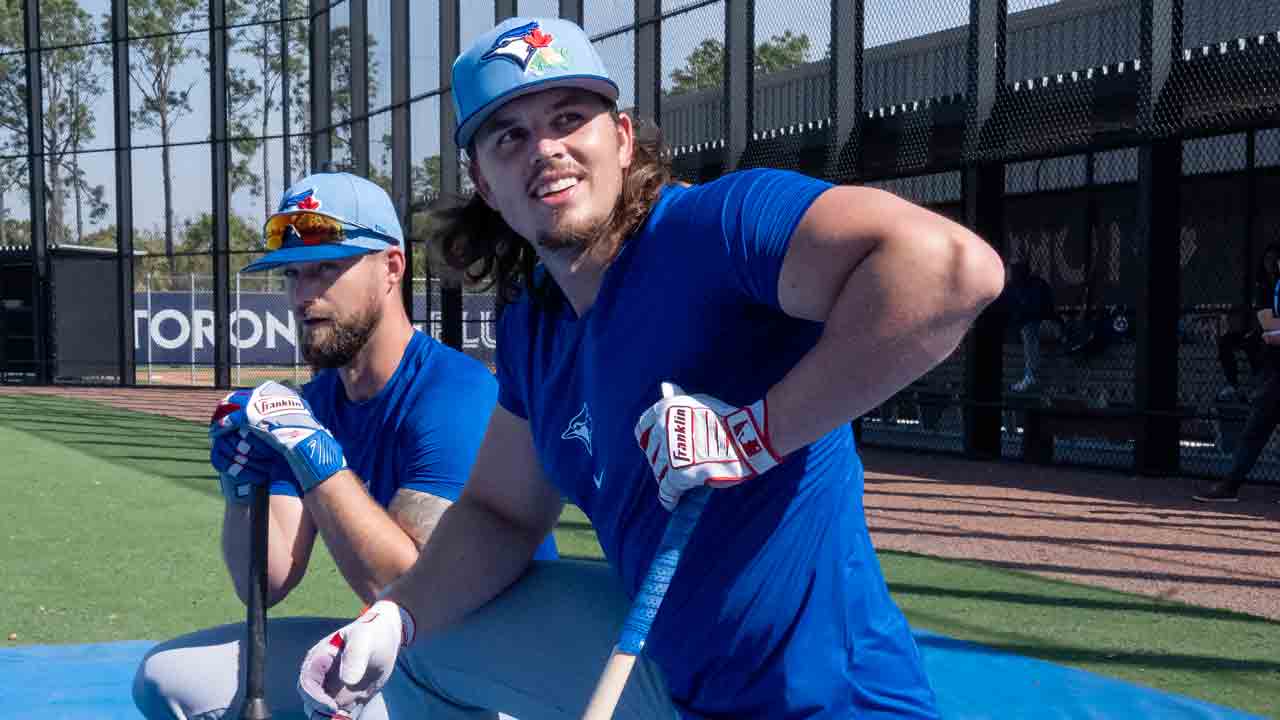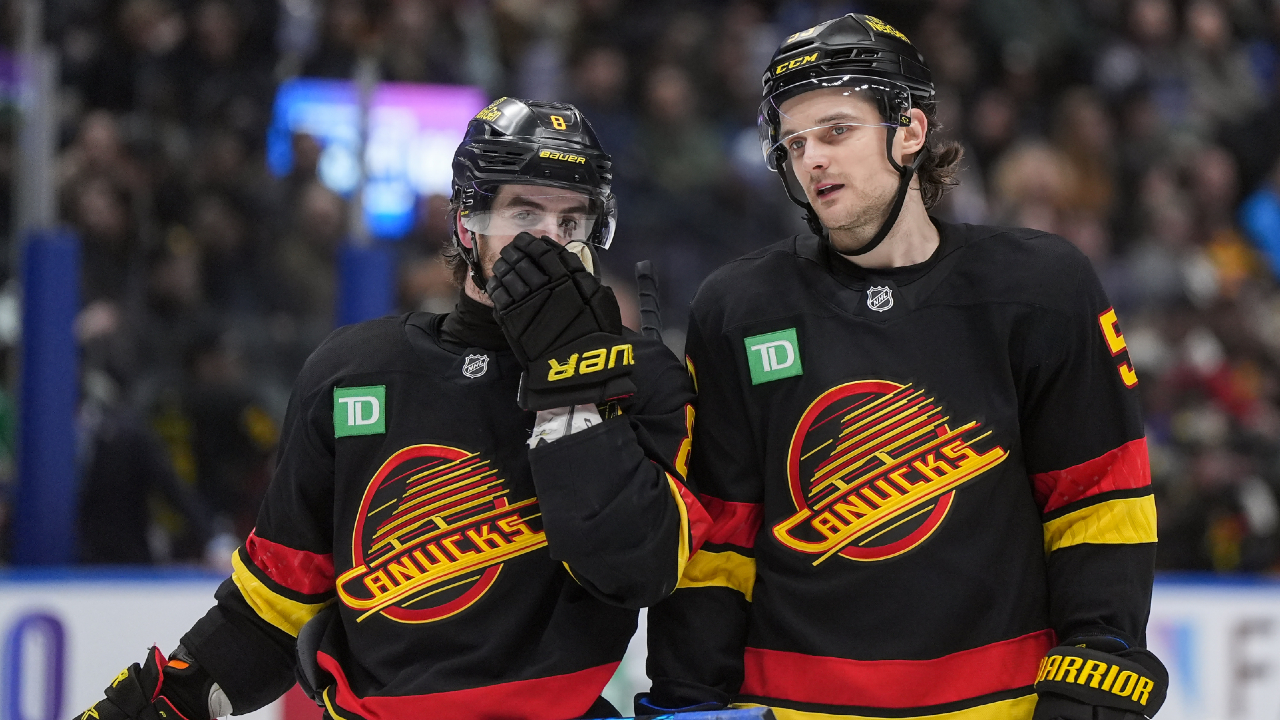
MINNEAPOLIS, Minn. — All right, OK, let’s get to it. Whit Merrifield says he got vaccinated. Three weeks ago, when the Kansas City Royals came to Rogers Centre to play the Toronto Blue Jays, he didn’t make the trip. He went on the restricted list. He forfeited four games’ pay and service time.
“If something happens and I happen to get on a team that has a chance to go play in Canada in the post-season,” Merrifield said at the time, “maybe that changes.”
In Kansas City, those comments didn’t go over well. A lot of fans were hurt. You’d get vaccinated to help another team win but not ours? And a lot of them let Merrifield know about it. Out and about, on social media, from the stands at Kauffman Stadium. And as the trade deadline neared and Merrifield realized he was very likely to be moved, possibly even to Toronto of all places, he decided he didn’t want to hurt another fanbase all over again.
“For a couple of weeks now, I’ve understood that this might be a possibility. And I’ll be in Toronto when the team goes there,” he said Thursday, wearing Blue Jays colours in the visitors’ dugout at Target Field in Minneapolis. “It was something that I probably could have handled a little better. But what happened, happened. And I’m excited to be a Blue Jay. I’m excited to get to Toronto and play at the Rogers Centre as my home.
“I’ll be in Toronto when the team gets to Toronto.”

And of course Merrifield got vaccinated. Why would anyone think he’d do otherwise? It would be legitimately shocking if the Blue Jays traded Max Castillo, a 23-year-old swingman with strong fastball command who’s pitched to a 3.05 ERA since making his big-league debut earlier this season, and Samad Taylor, a toolsy 24-year-old who plays multiple positions and likely would’ve been poached in last off-season’s Rule 5 draft if it happened, for a veteran utility player who can’t enter the country where half the club’s games take place.
The Blue Jays would never execute a transaction under those circumstances, just as they’d never compromise a player’s privacy by disclosing his health information publicly without consent. Merrifield’s vaccination decision was his to make and his to share. And now that it’s been made and shared, everyone can move forward.
Editor’s Note: The COVID-19 situation, in sports and around the world, is constantly evolving. Readers in Canada can consult the country’s public health website for the latest.
“What an exciting team. I’m so excited to be in this clubhouse, get to know some of these guys that I’ve played against from afar,” Merrifield said before chipping in a pair of hits as the Blue Jays beat the Minnesota Twins Thursday, 9-3. “As soon as I got traded, I called Ryan Goins and Justin Smoak — two of my really good friends. And they both said the same thing: ‘Man, you’re going to love it up there.’ I’ve only been on the opposing side. Had some choice words thrown my way. So, I’m excited to be on the other side.”
Not that it was easy leaving a Royals organization Merrifield spent the first dozen years of his professional career with and calls “my family.” He came a long way there. Merrifield was selected out of college by the Royals with the 269th overall pick in the 2010 draft and signed to a $100,000 bonus. He spent the next six years slowly working his way up the organizational ladder until finally, at the age of 27, he broke through to the big-leagues in 2016.
From there, he led the league in hits twice, in steals three times. He was a two-time all-star, including last season when he put up 42 doubles and 40 steals. Many of the coaches who helped develop him in the minors eventually joined him on Kansas City’s major-league staff. Merrifield’s known for weeks that his time with the Royals was coming to an end. But there’s no preparing yourself for those goodbyes.
“I didn’t expect it to be as tough as it was,” he said. “Saying goodbye to a lot of those guys, a lot of players that I’ve spent the majority of my career with, it was more emotional than I thought it would be. It’s part of the game. It’s part of the business. But that doesn’t mean it’s easy.”

Of course, much of Merrifield’s season has been about getting through things that haven’t been easy, from the regretful vaccination comments he made to the miserable slump he began this year that’s still dragging down his numbers today.
Merrifield remembers looking up at the Camden Yards scoreboard during a series in Baltimore a week into May and thinking, ‘Man, am I really hitting .130?’ Not quite. It was .135 with a .341 OPS through his first 113 plate appearances. He was about to be dropped to No. 8 in the Royals batting order after leading off or hitting second for the club every day for the last half-decade. It was a rough time.
But nothing seemed off in the batter’s box. If anything, Merrifield felt good — like the ball had been jumping off his bat as well as it ever has. He just wasn’t seeing results. Maybe it was the deadened baseballs; maybe the cold weather; maybe just bad luck. Well, certainly bad luck. Off the top of his head, Merrifield can tell you about 10 well-struck, early-season balls that simply didn’t drop in.
Whatever it was, a correction has been occurring ever since. Over 307 plate appearances from May 10 until he was traded, Merrifield hit .280/.332/.423, good for a 112 wRC+. He strung together separate hit streaks of 10, seven, and six games. He hasn’t had quite enough runway to drag his season-long numbers all the way out of the crater they started in. But he’s brought them up pretty far.
And he was a good bet to do so. His barrel rate and average exit velocity on the season are right in line with his norms; his strikeout and walk rates are both a tick better than over his career; his hard-hit rate’s up, too. Despite the early-season slump, you won’t find anything alarming in Merrifield’s peripherals.
What you will find is a suspiciously low .266 BABIP— his career BABIP is .323 and has never gone lower than .295 in a single season — plus sizable gaps between his actual and expected batting average (.240 BA; .253 xBA), slugging percentage (.352 SLG; .377 xSLG), and weighted on-base average (.282 wOBA; .303 xwOBA).
How much stock you put into these metrics that suggest Merrifield’s impacting pitches the same way he always has, just not receiving the results you’d expect based on his quality of contact, is up to you. There’s no disputing the fact his season-long line is that of a below-average MLB hitter. But Merrifield’s 80 wRC+ clearly doesn’t tell the entire story on the surface.
At least, that’s how Zack Greinke feels. When Merrifield was traded, one of the first texts he received was from the veteran Royals right-hander, who didn’t send him any pleasantries, any words of encouragement, or any actual words at all. Greinke merely sent a Tweet comparing Merrifield’s actual numbers to his expected ones, demonstrating how unfortunate he’d been.
“That was it. There was nothing else but the Tweet. And so, I saw him later on that day, and I was like, ‘Zach, I got your Tweet. What’s up?’” Merrifield remembered. “And he goes, ‘Yeah, man, I just want to let you know that you’re a good player. Even though sometimes the numbers might not show it.’”

It’s a good reminder. Even at 33, Merrifield’s still a productive, versatile player, capable of raising a club’s floor at any position around the diamond besides shortstop and catcher.
And while he’s undoubtedly lost a step in the field and on the basepaths from his 2017-2020 prime, losing only a step off elite speed and defensive metrics means you’re still an exceptionally skilled player. Merrifield’s sprint speed this season ranks within MLB’s 83rd percentile, putting him right in line with Teoscar Hernandez and George Springer. The only Blue Jay measured faster is late-game speed specialist Bradley Zimmer.
Merrifield’s ability to sustain above-average athleticism into his mid-30’s is good news for a club positioned to employ him through next season, as the Blue Jays are. At a modest $6.75-million salary for 2023, it isn’t hard to envision Merrifield providing ample surplus value if he keeps making contact the way he has, running as well as he is, and avoiding the injured list which he last visited in 2014.
The $18-million mutual option in his contract for 2024, when Merrifield will be 35, is another story. But with only a $500,000 buyout attached to that option, there’s little risk there for the Blue Jays.
Of course, they’ll worry about that then. For now, the Blue Jays have a multipurpose piece who can help them this year and next, a needed layer of insurance against injury to another regular, and a ballplayer who’s extremely motivated to compete for them — wherever the games are taking place.
“I feel like this is a ballclub that fits into my game. Action, excitement, versatility. Guys out there like to hit, like to swing the bat,” Merrifield said. “When you’re playing against certain teams from the outside, there’s teams that come in that you just feel an energy from. And this is one of those teams. From top to bottom. It’s just exciting baseball. I’m excited. I mean, I’ve said excited a lot. But I’m excited to be a part of this team.”






